|
A biweekly newsletter from the Anthroposophical Society in America
 |
|
June 15, 2020
Dear Members & Friends,
Welcome to our new e-newsletter! Our plan is to share news with you every other week, usually on Saturday mornings. Along with a few paragraphs each time on essential anthroposophy, there will be notes and notices, and a topic or two. Submissions are welcome, space permitting; we will link to longer ones.
This “being more consciously human” implies that it’s a good thing to be human. Despite some powerful negative memes out there, we affirm humanity—and understand also our urgent need to keep growing.
In our present astonishing circumstances, we have shown great resilience and found new community. Much that is happening these days seems to be saying to us, unexpectedly, please, be more truly human. May we find the support we need, in anthroposophy and each other.
|
|
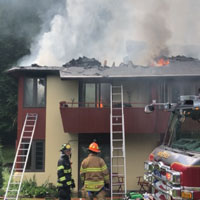 |
| Rudolf Steiner Fellowship Community has been a model of intentional community around the needs of seniors, a center for anthroposophic medicine, a biodynamic farm, and more. Fire destroyed a residential building last week; thankfully no one was hurt. |
|
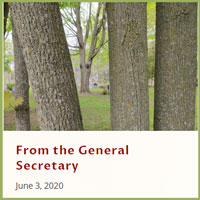 |
| As “general secretary” of our US society, John Bloom is our “country representative” in international meetings. He also reflects on the mood and challenge of our times in letters, posted on our blog, with the latest this past week. |
|
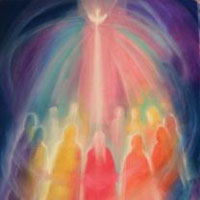 |
| “Five Good Words,” a wonderful online community gathering with Orland Bishop and friends, illuminated the universal meaning of the festival of Whitsun or Pentecost in this year of soul-stirring change. You can experience it online. |
|
|
|
TEACHING
From Molly McMullen-Laird, MD, of the Rudolf Steiner Health Center: “I wrote this poem on Saturday, I am not a poem writer. Read half speed. Thanks, Molly
George Floyd
Officer Chauvin you killed a man today
Did we teach you to do that?
You held him down
You detained him
In the line of duty.
Officer Chauvin you killed a man today
Did we teach you to do that?
You ignored his pleas
You compressed his airway
In the line of duty.
Officers you killed a man today
A black man who couldn’t breathe
A black man who wasn’t heard
A black man whose life you took
In the line of duty.
Did I teach you to do that?
Molly McMullen-Laird |
|
|
 |
|
ESSENTIAL ANTHROPOSOPHY
What is essential about anthroposophy? So many thoughts, so many perspectives! Rudolf Steiner is a great holistic researcher, repeatedly inviting us to consider things from many sides in order to see them whole. Properly, anthroposophy helps free us from limited and limiting views. (And see the Craig Holdrege link below.)
The word anthroposophy “should be interpreted as the consciousness of one’s humanity,” said Steiner in 1923. What should we be conscious of in our humanity? All of it: what we are, how we are, why we are, who we are, where we are. Human existence has an immensity of meaning. Anthroposophy would like to help us see that.
To be human is itself a special, evolving condition of consciousness. Julien Huxley in 1957 called it “the cosmos becoming aware of itself,” adding that “Never was there a greater need for a large perspective, in which we might discern the outlines of a general and continuing belief beyond the disturbance and chaos of the present...” Anthroposophy? Huxley couldn’t see it, apparently, proposing instead transhumanism., which today implies improving ourselves technologically.
He believed, however, we could, must, grow further as humans:
“We are beginning to realize that even the most fortunate people are living far below capacity, and that most human beings develop not more than a small fraction of their potential mental and spiritual efficiency.”
Being human is a chance to grow. Animals are complete at sexual maturity; are humans ever complete, perfected, finished? There rises a silent prayer from all kinds of beings that we will grow: grow beyond the modern, “objective” view, that sees us as accidental, death-defined, specks of matter, into what Steiner reported: that we are cosmic citizens helping to advance creation.
|
|
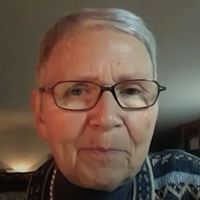 |
| Michaela Glöckler, MD, former leader of the Medical Section at the Goetheanum and president of Allianz Eliant, speaks about "herd immunity," high-risk groups, means to enhance wellness, the lungs ("the most social, most communicative organ that we have") and the atmosphere. Also, animals, fever, generating positive feelings while alone, real world education for the first sixteen years, surveillance technology and morality, —and good wishes to the young from one in the high-risk group. Download the PDF with links to the videos. |
|
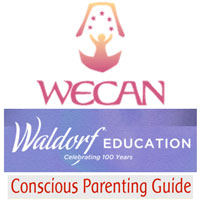 |
| The Waldorf Education site quotes David Barnham of the Maine Coast Waldorf School that “certainly none of us would choose digitized instruction over the beauty of face-to-face interaction…” But schools are drawing on their “very potent human relationships” to shape the necessities of this moment. For help and inspiration with your situation you can consult that page as well as The Waldorf Early Childhood Association of North America, which helpfully links to the Conscious Parenting Guide. |
|
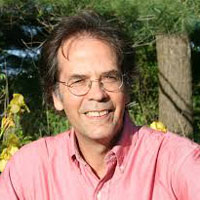 |
| A recent article by Craig Holdrege of the Nature Institute, “Viruses in the Dynamics of Life,” gives the ecological perspective to fill out our picture of the pandemic. “We have been struck by the narrow way viruses are typically described—as enemies that attack us. … Is this an adequate way of viewing viruses and infectious diseases? We had a sense that it is not.” Click here and scroll down for the full article. |
|
|
|
|
REGIONS
In the Eastern Region Luigi Morelli is organizing a “newsletter digest of Eastern Region branches” in the steady process of building more-than-local consciousness. It lists contacts for getting on the mailing lists, summaries of recent content, and longer content which has so far included “Awakening to the Second Coming Through Branch Life” from David Schwartz, “What if the Virus is Medicine?” from Jonathan Hadas Edwards & Julia Hartsell, Luigi’s own interview with Beatrice Birch of Inner Fire, and “An Imagined Letter from Covid-19 to Humans” by Krisin Flyntz. There are websites for the northeast and southeast areas, and Luigi’s digest is linked on both.
The Central Region website has video recordings and other resources, under “The Karma Project: File Sharing,” for its Ascension and Holy Week offerings, as well as older programs with Drs. Roberta Nelson and David Tresemer, Ross Rentea MD, Linda Bergh, and Fred Amrine.
And in the Western Region, “the Western Regional Council had just taken up the study of Awakening to Community when the world changed. We were open to where it might take us, possibly engaging directly with groups and branches across the region. Then, as it became necessary to implement physical distancing, awakening to community raised new questions. What is my experience of others when we ‘meet’ virtually? What is my experience of myself as I see myself on the screen? What changes in my consciousness am I called upon to bring to this way of working in order that truly human interactions have the possibility to arise? What are the limits and what are the new possibilities of working together virtually? What clear understanding of technology do we need to work in this way?
At this writing, having raised these questions and others, the WRC has not yet determined its next steps. Are these questions also living with you? Is there interest in taking up this research together? (Email your thoughts.) For the WRC: Sebastian Heycke, Micky Leach, Kirk Mills, Rebecca Soloway and Sandra Stoner.
|
|
 |
|
Peonies are the “Whitsun roses” of Central Europe. The flowers in this close-up, and the one above, were gracing the front garden of Rudolf Steiner House in Ann Arbor, Michigan, last week.
These remind me that Rudolf Steiner encouraged us to try to observe plants sometimes with the will—a dramatic suggestion for these fragrant and turbulent blossoms!
Thank you for reading, and for being part of our community. Your thoughts and suggestions are always welcome.
John Beck
Editor, being human
editor@anthroposophy.org
Anthroposophical Society in America
PS – Stay tuned for information on our annual fall conference in October—which will be online. Participants in the April Sacred Gateway conference experienced that even online it is possible to achieve much of the warmth and personal engagement we love in face-to-face meetings. You can share the whole recorded event.
|
|
Anthroposophical Society in America (US)
www.anthroposophy.org
|
|